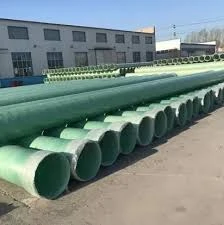
-
 Afrikaans
Afrikaans -
 Albanian
Albanian -
 Amharic
Amharic -
 Arabic
Arabic -
 Armenian
Armenian -
 Azerbaijani
Azerbaijani -
 Basque
Basque -
 Belarusian
Belarusian -
 Bengali
Bengali -
 Bosnian
Bosnian -
 Bulgarian
Bulgarian -
 Catalan
Catalan -
 Cebuano
Cebuano -
 China
China -
 China (Taiwan)
China (Taiwan) -
 Corsican
Corsican -
 Croatian
Croatian -
 Czech
Czech -
 Danish
Danish -
 Dutch
Dutch -
 English
English -
 Esperanto
Esperanto -
 Estonian
Estonian -
 Finnish
Finnish -
 French
French -
 Frisian
Frisian -
 Galician
Galician -
 Georgian
Georgian -
 German
German -
 Greek
Greek -
 Gujarati
Gujarati -
 Haitian Creole
Haitian Creole -
 hausa
hausa -
 hawaiian
hawaiian -
 Hebrew
Hebrew -
 Hindi
Hindi -
 Miao
Miao -
 Hungarian
Hungarian -
 Icelandic
Icelandic -
 igbo
igbo -
 Indonesian
Indonesian -
 irish
irish -
 Italian
Italian -
 Japanese
Japanese -
 Javanese
Javanese -
 Kannada
Kannada -
 kazakh
kazakh -
 Khmer
Khmer -
 Rwandese
Rwandese -
 Korean
Korean -
 Kurdish
Kurdish -
 Kyrgyz
Kyrgyz -
 Lao
Lao -
 Latin
Latin -
 Latvian
Latvian -
 Lithuanian
Lithuanian -
 Luxembourgish
Luxembourgish -
 Macedonian
Macedonian -
 Malgashi
Malgashi -
 Malay
Malay -
 Malayalam
Malayalam -
 Maltese
Maltese -
 Maori
Maori -
 Marathi
Marathi -
 Mongolian
Mongolian -
 Myanmar
Myanmar -
 Nepali
Nepali -
 Norwegian
Norwegian -
 Norwegian
Norwegian -
 Occitan
Occitan -
 Pashto
Pashto -
 Persian
Persian -
 Polish
Polish -
 Portuguese
Portuguese -
 Punjabi
Punjabi -
 Romanian
Romanian -
 Russian
Russian -
 Samoan
Samoan -
 Scottish Gaelic
Scottish Gaelic -
 Serbian
Serbian -
 Sesotho
Sesotho -
 Shona
Shona -
 Sindhi
Sindhi -
 Sinhala
Sinhala -
 Slovak
Slovak -
 Slovenian
Slovenian -
 Somali
Somali -
 Spanish
Spanish -
 Sundanese
Sundanese -
 Swahili
Swahili -
 Swedish
Swedish -
 Tagalog
Tagalog -
 Tajik
Tajik -
 Tamil
Tamil -
 Tatar
Tatar -
 Telugu
Telugu -
 Thai
Thai -
 Turkish
Turkish -
 Turkmen
Turkmen -
 Ukrainian
Ukrainian -
 Urdu
Urdu -
 Uighur
Uighur -
 Uzbek
Uzbek -
 Vietnamese
Vietnamese -
 Welsh
Welsh -
 Bantu
Bantu -
 Yiddish
Yiddish -
 Yoruba
Yoruba -
 Zulu
Zulu
Advanced Design Approaches for Efficient FRP Clarification Systems in Water Treatment
Understanding FRP Clarifiers A Green Solution for Water Treatment
In recent years, the increasing demand for efficient and sustainable water treatment solutions has led to the emergence of various innovative technologies. One such solution is the Fiber Reinforced Plastic (FRP) clarifier, which is gaining popularity in the field of wastewater management. FRP clarifiers are designed to enhance the sedimentation process, making them a vital component in modern water treatment facilities. This article explores the significance, functionality, and benefits of FRP clarifiers in promoting sustainable water management.
What is an FRP Clarifier?
An FRP clarifier is a wastewater treatment unit constructed from fiber reinforced plastic, a composite material known for its high strength-to-weight ratio, durability, and resistance to corrosion. Traditional clarifiers, often made of concrete or steel, can be prone to rust and degradation over time. In contrast, FRP clarifiers offer superior longevity and lower maintenance costs, making them an attractive option for treatment plants and industrial applications.
The Functionality of FRP Clarifiers
FRP clarifiers operate on the principle of gravity separation, where suspended solids in wastewater settle at the bottom of the tank, allowing clarified water to rise to the surface. The process typically involves the following steps
1. Influent Entry Wastewater enters the clarifier and is evenly distributed across the tank surface. 2. Sedimentation As the flow slows down, heavier solids begin to settle under the influence of gravity. This sedimentation process allows for the separation of solids from the liquid. 3. Sludge Collection The settled solids, known as sludge, accumulate at the bottom of the tank. An automatic or manual sludge removal system is often employed to continuously or periodically extract this sludge for further processing or disposal. 4. Effluent Discharge The clarified water, now free of most suspended solids, is collected from the top of the clarifier for downstream treatment or discharge.
This simple yet effective process makes FRP clarifiers suitable for a variety of applications, including municipal sewage treatment, industrial wastewater treatment, and stormwater management.
frp clarifier

Advantages of Using FRP Clarifiers
1. Durability The corrosion-resistant nature of FRP ensures that clarifiers maintain their structural integrity over time, even in harsh environmental conditions. This durability translates into longer operational life and reduced replacement costs.
2. Lightweight Design Compared to traditional materials, FRP is significantly lighter. This characteristic simplifies transportation and installation, reduces foundation requirements, and allows for more versatile placement within existing infrastructure.
3. Cost-Effectiveness The initial investment in FRP clarifiers may be higher than conventional systems, but the long-term savings in maintenance, repair, and replacement make them a cost-effective solution.
4. Eco-Friendly FRP clarifiers can contribute to sustainable water treatment practices. Their efficient operation minimizes energy use, while their durability reduces the need for frequent replacements, leading to less waste.
5. Customizability FRP can be molded into various shapes and sizes, allowing for the design of clarifiers that meet specific operational requirements and spatial constraints.
Conclusion
As the world grapples with water scarcity and pollution, the need for efficient and sustainable water treatment technologies is more pressing than ever. FRP clarifiers stand out as a practical and innovative solution, providing robust performance, longevity, and environmental benefits. By investing in such advanced technologies, municipalities and industries can ensure the effective management of wastewater, promoting cleaner water systems and a healthier planet for future generations. Through the adoption of FRP clarifiers and similar solutions, we move one step closer to achieving sustainable water management in an increasingly challenging world.
Latest news
-
High-Quality Fiberglass Car Bodies Durable GRP Car & Boat Body SolutionsNewsJul.08,2025
-
High-Quality Fiberglass Dual Lamination Product Manufacturer Durable FRP & GRP Dual Lamination SolutionsNewsJul.08,2025
-
Rectangular Tank with Dimensions for GRP Calculation Custom Fiberglass GRP Rectangular TanksNewsJul.07,2025
-
High-Quality Fiberglass Weir Custom FRP Weir & Fiberglass Tanks ManufacturerNewsJul.07,2025
-
CPVC FRP Pipe A Reliable Choice for Industrial Applications High Strength & Corrosion ResistanceNewsJul.07,2025
-
Fiberglass Scrubber for Effective Cleaning and Stain Removal – Superior Performance in Various ApplicationsNewsJul.06,2025









